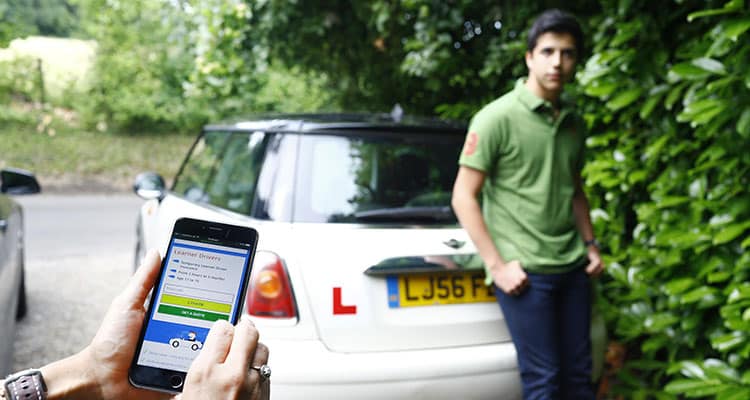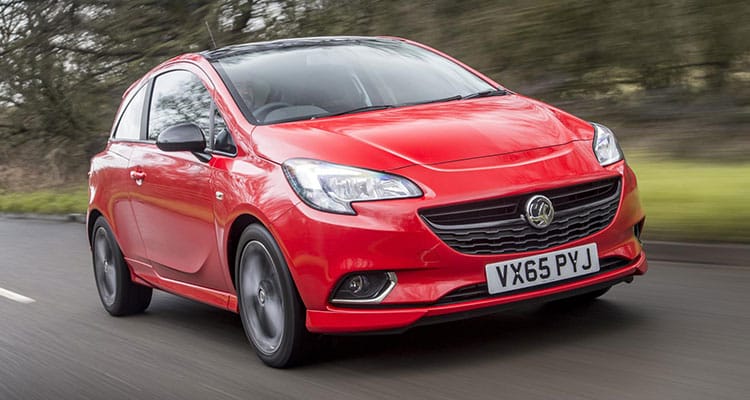P plates may be uncool but people want them to be made a legal requirement!
Should P plates be made a legal requirement? Well, that’s what 70% of people think, according to Motorpoints latest online poll which you can view here.
New drivers that have just passed their tests are well-known for holding up traffic, making dangerous mistakes, stalling at the lights and so on. In fact, a study by ALA Gap Insurance has found that roughly 1 in 5 new drivers have an accident during their first year of driving.

Motorpoint’s poll, made up of 590 participants, showed that over two-thirds of people agreed that P plates should be made mandatory for drivers during their first year of driving.
Mark Carpenter, Chief Executive Officer of Motorpoint, said: “The results of the Motorpoint poll clearly show that more serious consideration needs to be given to whether or not P plates should become mandatory throughout the UK for an agreed period of time or at least until a newly qualified driver feels confident enough to remove them.”

Interestingly, this is already a law in Ireland, where new drivers must display an ‘N’ plate to show other drivers that they are ‘novices’. This plate must be on the car for the first two years of driving, however, many drivers either ignore this rule or try to make the plate more discreet by trimming the white background.

Similarly, in Northern Ireland, new drivers must display an ‘R’ (for ‘restricted’) plate on their car for the first year of driving. Not only is it a requirement to have this plate on the vehicle, but R plate drivers are also restricted to a speed of just 45 mph! Those in the Isle of Man also have to display R plates and are restricted to a speed of 50 mph.

Various other countries around the world also follow a similar system. India, Japan, Malaysia, France, Canada, Spain and Israel all have similar rules where new drivers, after they have passed the main exams, are required to display some sort of plate, badge or mark to tell other drivers that they are a novice, inexperienced and not yet proficient in driving.

Could the UK benefit from a similar type of law? It’s certainly up for debate.
As previously mentioned, roughly 1 in 5 new drivers have an accident during their first year of driving according to ALA Gap Insurance. Also, although drivers aged 17-19 only make up 1.5% of drivers, they are involved in 9% of fatal and serious crashes according to stats from the DVLA (2015) and the Department for Transport (2015).
According to the AA (2012), almost 1 in 4 new drivers aged between 18 and 24 crash within two years of passing their driving test. P plates would make other road users around the newly qualified driver more aware and may encourage them to change their driving behaviours (tailgating, impatience, overtaking etc.) to change when driving near a P plate car.

On the other hand, speaking as someone who had to bear the L plates not too long ago (and still do on a motorcycle) I know how uncool it feels. Many, especially new drivers, will argue that plates are embarrassing, humiliating and do a great job at taking the fun out of driving. Furthermore, some people find that bearing L plates or P plates can sometimes have a negative effect, with other drivers becoming more aggressive and less patient when driving behind (or in the general vicinity of) them.

Now, there’s no doubt that there would be an uproar of angry teens and new drivers of all ages if a law was put in place to make P plates a legal requirement, but at the same time, we have to ask if it would be for the greater good? Is it worth looking uncool for another year after passing your driving test to make the roads a safer place? I think so.
Let us know your thoughts in the comments!
Also, if you enjoyed this, I reckon you would also enjoy reading about how Brexit has affected the UK car industry.

For more articles like this, receive our weekly e-newsletter, including partner deals and all things motoring, register your email below.
Please note: You cannot subscribe to Smart-Motoring unless you put a tick in the checkbox below to indicate have read and agreed to our privacy policy.



